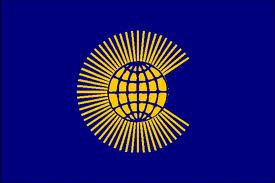
McLeod Group Blog, April 21, 2014
The Harper government’s announcement that it will cut $20 million over the next two years from its funding to the Commonwealth Secretariat because of human rights abuse in Sri Lanka is surely one of the most illogical things it has done in a fast-growing list.
The Prime Minister of Sri Lanka currently serves as the Chair-in-Office of the Commonwealth because Sri Lanka hosted the last Commonwealth Heads of Government Meeting (CHOGM) in 2013. The Chair-in-Office is a largely ceremonial function, serving to voice Commonwealth positions at high-level international forums. The Chair-in-Office does not manage or influence the work of the Commonwealth Secretariat any more than any other Commonwealth government or head of state. The next CHOGM meeting takes place in Malta in 2015, and the Chair-in-Office after that will be the Prime Minister of Malta.
The Commonwealth Secretariat has a wide range of programs ranging from the arts to scientific collaboration, women’s rights and international development. It facilitates democratic processes through its longstanding election observer work. While all member states benefit, the work of the Commonwealth Secretariat is especially important to many small island nations that are ignored by other international organizations and bilateral agencies. The Commonwealth has taken tough stands in recent years on human rights and political abuse in countries as divergent as Zimbabwe (suspended) and Fiji (suspended), and it has proved increasingly attractive to other countries, some even without a British colonial legacy. In recent decades, Mozambique (1995), Rwanda (2009) and Cameroon (1995) have joined, and other applications are under consideration, including Algeria, Madagascar, Yemen and both Sudans.
Canada made a huge fuss over holding the last CHOGM in Sri Lanka because of human rights abuse in that country. Stephen Harper refused to attend, sending a low-level member of parliament in his place. He had no difficulty in 2012, however, attending the Francophone Summit in the Democratic Republic of Congo (DRC), a country with plenty of human-rights problems of its own. He didn’t blame the Francophonie for what was going on in DRC because that would have made no sense. But Sri Lanka is different, it seems, not least because of the large Tamil diaspora in Canada.
Now Mr. Harper is going to punish the Commonwealth Secretariat, a technical organization based in London, for somehow allowing human rights abuse to take place in Sri Lanka. By that token, Canada should slash its contribution to pretty much every UN agency (oh, maybe we already have), NATO (e.g., human-rights problems in Romania), ASEAN (e.g. human rights problems in Myanmar et al), the Organization of American States (e.g. Honduras et al), the G-20 (e.g., human rights abuse in Saudi Arabia), the G-8 (e.g., human rights abuse in Russia). And while we’re at it, we should start cutting back on the World Bank, the Inter-American Development Bank, the Asian Development Bank and a host of others. And given the location of the next CHOGM, perhaps we should take a long hard look at the Order of Malta, with which Canada established official relations in 2008.
It’s time for an end to the hissy fits, the bullying, shouting and situational ethics that seem to rule Canada’s international relations these days. There are many ways to tackle human rights abuse in a country like Sri Lanka. Damaging the work of a respected international organization is not one of them.
